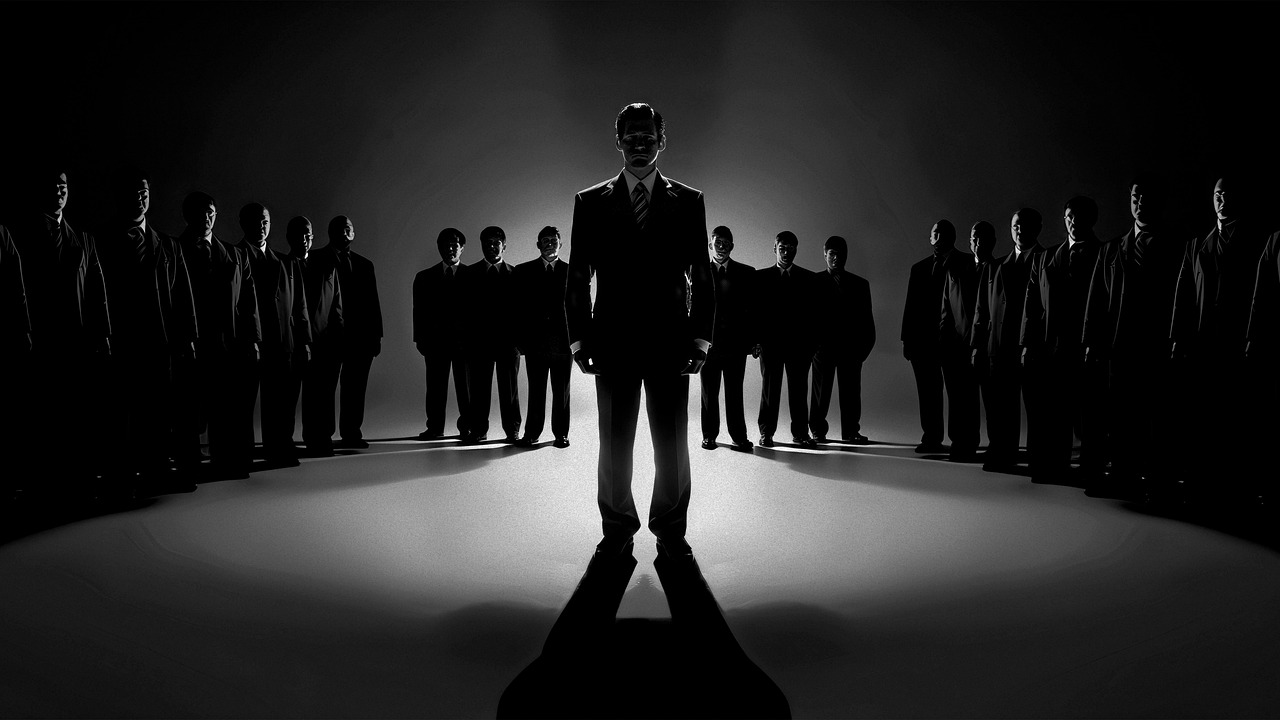
Something tragic is unfolding on the intellectual right. At a time when some of the most compelling cultural critiques come from conservative thinkers, it's not reason, nuance, or truth that captures the wider public. Instead, the conversation is dominated by charismatic performers and online prophets whose psychological profiles resemble Machiavelli more than Burke. The right isn't lacking intelligence; it's drowning in the dark triad.
By Dina-Perla Poortnaar
This isn't an attack. It's an observation. Some of the sharpest insights on tradition, meaning, and the failures of progressive modernity come from conservative scholars. Yet many now find themselves eclipsed by personalities less interested in ideas than in influence. Figures shaped not by intellectual clarity but by narcissism, Machiavellianism, and psychopathy. I speak as someone on the right myself: precisely because I care, I'm concerned.
Domination only works with hierarchy
The dark triad isn't a political category. It appears across the spectrum. Yet it seems disproportionately visible on the far right. Why? Because these traits, thus craving admiration, cold manipulativeness, and callous indifference, thrive in systems that moralise hierarchy. They don't argue in good faith. They seduce, distort, and humiliate because domination only works with subordination.
Why does the radical right attract this? Why do so many of its loudest figures combine genuine intellect with bullying showmanship? They disdain compromise, dehumanise opponents, and revel in chaos. For them, politics is not about persuasion, but about theatre.
The answer may be more psychological than ideological. The radical right's scaffolding, in other words, belief in hierarchy, purity, and strong identity, offers fertile ground for those who hunger not for truth but for control. Narcissism thrives where superiority can be moralised. Machiavellianism excels where tribal loyalty overrides truth. Psychopathy flourishes where empathy is weakness and cruelty becomes courage.
This doesn't describe everyone on the right, far from it. However, certain ideologies create affordances that attract individuals with domination-seeking personalities. They won't gravitate to liberal proceduralism or leftist egalitarianism. They prefer worldviews where hierarchy is virtue, enemies must be conquered, and leadership fuses with charisma.
When personality eclipses principle
Eduard von Hartmann, a forgotten 19th-century philosopher, argued that ideology often masks character. Some become nationalists not out of love for their country but because myths provide a stage for their grandeur. Today's digital reactionaries aren't always defenders of tradition, but entrepreneurs of influence.
Modern media amplifies this. Platforms reward emotional intensity, conflict, and spectacle—perfect fuel for the dark triad. Narcissists gain visibility, Machiavellians master algorithms, psychopaths flourish in anonymity. In such an ecology, the sober conservative scholar is rarely heard. The flamboyant demagogue is endlessly retweeted.
That's how someone with a history of abusive behaviour can reinvent himself on a far-right platform and pass as a respectable debater. That's how networks of such personalities reinforce one another and cover each other's misconduct. They feed on others' right-wing ideas, while bullying their very sources out of the space.
The mass influencer
Ortega y Gasset warned in The Revolt of the Masses of the rise of the "mass man," who hides behind ideology to mask his laziness. Today, we might say: to mask emotional emptiness. These figures are rarely stupid. On the contrary, they stand out intellectually but use their gifts to manipulate. The "mass influencer" with the fewest scruples bends technology to amplify their own influence.
The left, of course, has its flaws. But its pathologies differ. The radical left tends toward moral absolutism and ideological puritanism. Its danger lies not in the dark triad but in overcharged moralism that curdles into sanctimony. The right, by contrast, is vulnerable to narcissistic spectacle.
That's the tragedy. The right's true strength, its defence of tradition, character, freedom, and moral realism, is eroded not by leftist critique but by its own susceptibility to theatrical authoritarianism. What ought to be a space for the defence of human nature becomes a stage for self-anointed prophets.
The crisis of character
Émile Zola's J'accuse was not only a protest against a judicial failure. It exposed a culture of cowardice. Were he alive now, he might ask not what political figures believe, but what they are because personality structure predicts behaviour more than ideology does. The most dangerous figures aren't those with strong views but those whose makeup renders them incapable of doubt, empathy, or truthfulness.
So we must ask: who are we listening to? Not just in content, but in character. Are we drawn to integrity or to those who exploit language to mask emptiness? This isn't a call for purity tests. It's a plea for discernment. In an age of endless information, character must become a filter. Ideas are only as trustworthy as the people who wield them.
Protecting ideals from parasites
Jan Patočka, the Czech dissident philosopher, wrote: "The real political crisis is always a crisis of responsibility." Responsibility begins with self-awareness. The challenge of the dark triad isn't just about the "other side." It's about the right itself becoming more sincere.
The right does not need to abandon its ideals. It must protect them, not from progressive critique but from parasitic personalities who claim its name. Because if the right becomes a haven for the dark triad, it will lose not only its moral authority but its soul. We will be left with a politics where the darkest impulses drown out all others, and where power matters more than truth.
The intellectual right can and should offer clarity, tradition, and strength of character. But first it must confront its own shadow: the flamboyant manipulators who thrive on division and domination. Only then can the principle reclaim its place from personality.
Dina-Perla Portnaar is an Amsterdam-based writer, public speaker, and advisor working at the intersection of ethics, storytelling, and critical thinking. Find more of her here.





